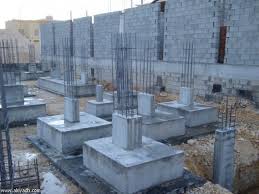
Nature of work
A structural engineer designs, plans structural components and structural systems. He/she ensures buildings and other structures do not bend, twist, collapse or vibrate and remain strong. He/she helps to design most structures including houses, theatres, sports venues, hospitals, office blocks, bridges, oil rigs, space satellites, ships and aircraft. He/she works in closely with architects. He/she analyzes configurations of the basic structural components of a building or other structure, calculates the pressures, strains that each component, such as a beam or lintel, will experience from other parts of the structure due to human use or environmental pressures such as weather or earthquakes. He/she considers the strength of various materials. He/she liaises with other designers, including architects, to agree on safe designs and fitness with the aesthetic concept of the construction .He/she examines structures at risk of collapse and advising how to improve his/her structural integrity. In addition, he/she makes drawings, specifications and computer models of structures, uses computers and computer-aided design (CAD) technology for simulation purposes. Environment of work
Working hours are generally from 8.30 am to 3.30 pm, with the possibility of occasional evening and weekend work. The work is office-based with occasional visits to construction sites to visit other professionals working on a project or clients or to measure progress of a building project. Self-employment is possible. Some structural engineers work on a contract basis and some set up his/her own consultancies. Career breaks are possible once he/she is qualified. A structural engineer dress appropriately for the office but adapt their attire for site visits, which may include wearing certain safety clothes. The public depends on the skills of structural engineers for their safety. Travel within a working day is common as sites are often local to an engineer's place of work. However, working away from home on a project is possible from time to time especially for senior structural engineers and project managers. Professional life
Starting as a structural engineer soon moves on to become a project manager. He/she may work alone, liaise closely with all the other construction professionals involved, or as part of a project team. Most large organizations have a formal progression structure, but if he/she works for a smaller company, it may be necessary to move to another employer to progress. Career options include moving from an engineering consultancy to a construction company or vice versa. Another option is to work as a self-employed contract engineer and be paid for each completed contract. Some structural engineers set up their own engineering consultancies, either alone or with partners. A few are employed in architects’ offices. Another possibility is a career as a researcher or an academic at a university. Further qualifications may be required for the teaching aspect.Range of typical starting salaries: 50000 SYP.
Getting the job
A structural engineer needs a bachelor’s degree. He/she typically needs a graduate degree for promotion to managerial positions. He/she must first complete a bachelor’s degree in civil engineering or one of its specializations. Programs in civil engineering typically take 5 years to complete and include coursework in mathematics, statistics, engineering mechanics and systems, and fluid dynamics, among other courses, depending on the specialty. Courses include a mix of traditional classroom learning and laboratory and field work.Further education after the bachelor’s degree is helpful in getting a job as a manager. A structural engineer needs both a license and experience to become a manager.
Skills
There are many skills he/she needs to have and improve, such as:Solving problem skills. He/she works at the highest level of design and plan large infrastructure projects, such as airports and roadways, which requires solving complex problems.
Decision-making skills. He/she must determine the feasibility of plans, especially regarding financial costs and safety concerns.
Leadership skills. He/she is ultimately responsible for the infrastructure project’s design and implementation.
Numeracy skills. He/she uses the principals of calculus, trigonometry, and other advanced topics in mathematics for analysis, design, and troubleshooting in their work.
Project management. Only a licensed structural engineer can sign the plans for infrastructure projects.
Communication skills. He/she must be able to communicate with other professionals, such as architects, landscape architects, and urban and regional planners.
Sources and references
If you need any further information on what is included in this file, you can visit the following websites:· www.asce.org/sei/, Structural Engineering Institute
· www.seaint.org, Structural Engineers Association
· ascelibrary.org/journal/jsendh,Journal of Structural Engineering
· The Order of Syrian engineers, Damascus, Tel: 6627256
· www.arab-eng.org, Arab Engineers Forum.
· Arab Standard Classification of Occupations, 2008, Ed. Arab Labor Organization.
